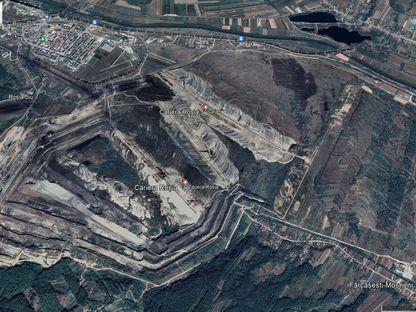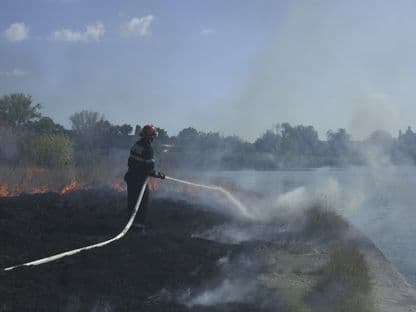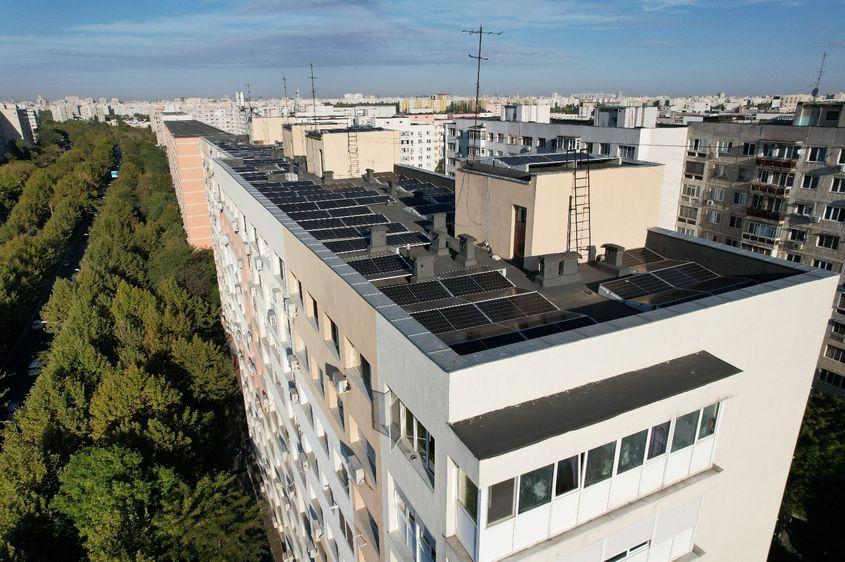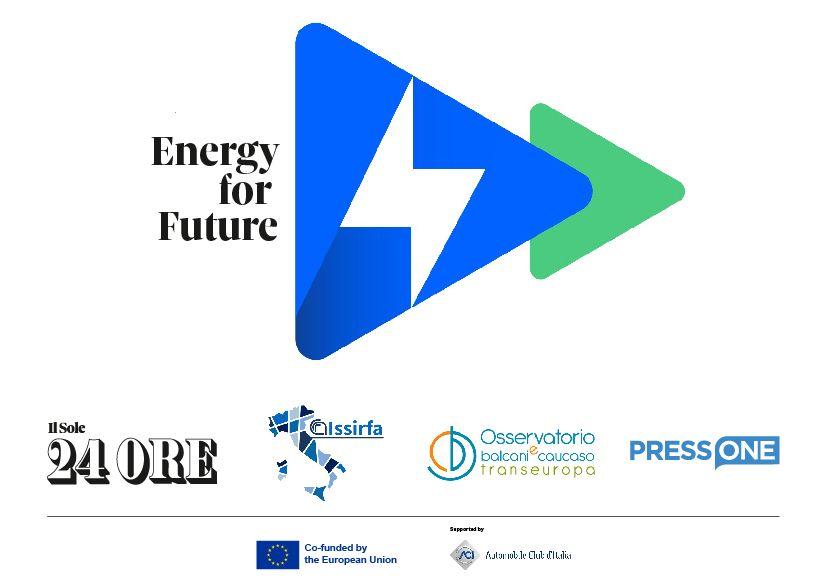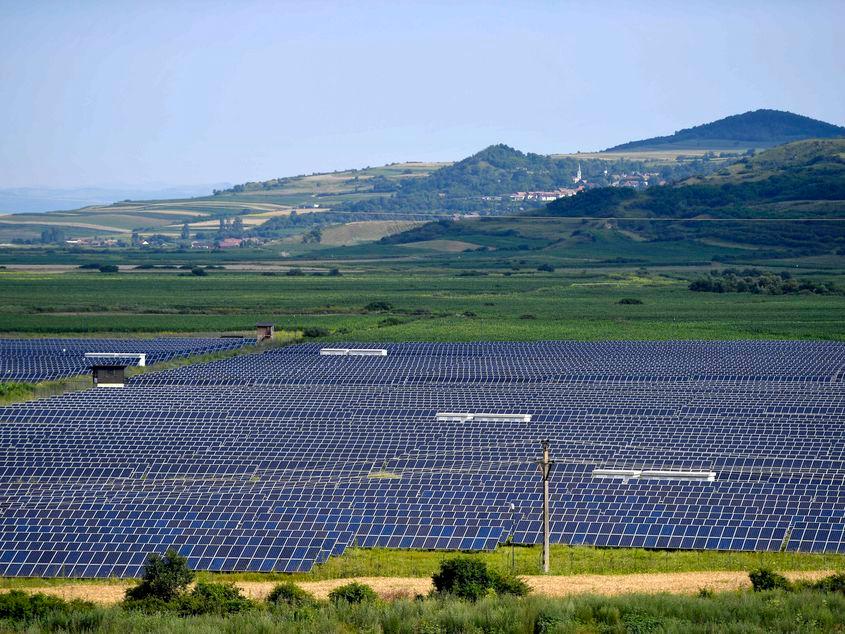
Solar panels in Lechinta, Bistrița-Năsaud. Photo: Inquam Photos/Alex Nicodim
02/07/2024
Energy in People's Hands. How Romania's First Energy Community Was Formed
Romanians could have much lower energy bills and contribute to the energy transition at the same time. How? By regulating a framework for energy communities. That is, those collectives that produce, manage and consume energy from green sources.
PressOne has already shown how only a regulation issued by the National Energy Regulatory Authority could create a framework for energy communities to come together. There are 9,000 such energy communities in Europe, while in Romania there are barely 21, at various stages of development. These include the Energy Cooperative, the first energy community to be formed in Romania, which operates on democratic principles, with each member representing one vote. The cooperative currently has more than 900 members.
PressOne spoke to Bogdan Stroe, president of the board of directors, to understand what an energy cooperative means and how it can work in Romania, and why democratizing access to energy is the next step in the climate transition.
PressOne: What is the Energy Cooperative and how did it come into being in the absence of a legislative framework dedicated to energy communities?
Bogdan Stroe, Chairman of the Board of Directors: The Energy Cooperative is organized according to the law of European cooperatives. It is a bit different from the Romanian law. Basically we operate on the basis of a European regulation for cooperatives of all types, not only energy cooperatives. This concept was later also taken up in the directives that named energy communities.
We are talking about democratic control of the organization. This is the basic idea and the significant difference between us and an LLC, for example.
To join the cooperative you have to buy some shares, like shares, but no matter how many shares you have, each member has one vote. So decisions are taken democratically. You can't come in and take over the cooperative on the basis of a majority. And this principle also applies to energy communities.
How was the cooperative set up?
We have one of the conditions, for the notion of European cooperative, to have members from several countries, not just from one country. We currently have around 970 members, most of them from Romania, but also from other countries. We're talking about people who live in Romania but are of other nationalities, Belgians, Spaniards.
For example, a founding member of the cooperative is from Spain. He used to be part of a cooperative there, Som Energia, one of the biggest in Europe, and he basically came with his expertise in this area, how to do things, how to organize ourselves. Because in Western Europe this concept has been developed for several decades and has become very strong.
Mulți ne citesc, puțini ne susțin. Fără ajutorul tău, nu putem continua să scriem astfel de articole. Cu doar 5 euro pe lună ne poți ajuta mai mult decât crezi și poți face diferența chiar acum!
We are now also members of REScoop, which is the association of energy communities at European level and we see how energy communities in Western Europe have now come up with all kinds of energy production projects from wind, photovoltaic. Or energy efficiency projects for buildings, building envelopes. So what the state does for us, the community is now doing for them.
Against this diverse background, what does the Energy Cooperative do?
Our aim is to facilitate the energy transition in Romania and to invest in projects that help this goal. Renewable energy production, supply and then mobility projects.
How did I see the cooperative when I joined? I lived in a block of flats, there was no question of becoming a prosumer, but I wanted to contribute to the energy transition as a citizen, as a small investor. And in Romania there was no such opportunity at that time, in 2019.
There were no listed companies in this field. In the meantime they have appeared. There were no investment funds. For example, there are green investment funds out there. I mean you buy shares in a certain fund and you know that your money is invested in projects like that.
Defrișări pentru cărbune. Cum au fost tăiate peste 470 de hectare de pădure pentru extinderea unor mine din Gorj
În ultimii șase ani, peste 470 de hectare din fondul forestier național au fost oferite de guvern, fără compensare, Complexului Energetic Oltenia (CEO) pentru extinderea sau deschiderea unor noi cariere de cărbune. În aceeași perioadă, România și-a asumat, prin PNRR, eliminarea treptată a producției de energie pe bază de lignit și huilă, precum și închiderea etapizată a minelor până în decembrie 2032.
Deși incendiile de vegetație se înmulțesc, în Europa numărul pompierilor scade
Incendiile de vegetație devin un fenomen tot mai amplu și mai grav în toată Europa, însă numărul pompierilor angajați în fiecare țară este tot mai mic.
The energy cooperative was the first organization that declared, assumed, that it was investing for this purpose. And the main goal is not profit but social and environmental benefit.
Specifically, how does the energy cooperative contribute to the energy transition? What role does it play?
History has been a bit turbulent. The crises that have hit society in the last four years have also affected our organization. We were established in October-November 2019, and the original plan was to immediately purchase a photovoltaic park. Then came the pandemic and all plans were shelved.
Un newsletter pentru cititori curioși și inteligenți.
Sunt curios
In 2021, we resumed the idea of investing. And we found a project. There was a company (Apuron Energy) leaving Romania and selling a photovoltaic park and an electricity supply company. Unfortunately, at the time, we didn't raise enough money from our members to buy both. And we could only buy the electricity supply company. This is how we became the first supplier in Romania to offer 100% renewable electricity.
Around 100,000 apartment blocks in Romania could produce green energy by installing photovoltaic panels on their roofs. Photo: Ioana Podaru, president of an owners' association in Sector 3, Bucharest
In short, the cooperative takes the green energy produced by the photovoltaic park and passes it on to consumers?
Yes. We buy from a photovoltaic park and from prosumers, the excess that they inject into the grid, and sell it on to consumers. We currently have around 500 customers.
In the absence of a dedicated regulatory framework, how could the Energy Cooperative model be replicated?
We want as many of these communities as possible. Our aim is not to have a monopoly, we even have projects where we encourage the formation of communities.
We are also working with several town halls around the country and next year we will have a project where we will offer grants to cooperatives that are forming.
This is especially in the context of the European Commission's target to have at least one energy community in every town in the European world with more than 10,000 inhabitants. In Western Europe there are already very many.
In the energy transition framework, why are energy communities important?
The fact that people produce their own energy and consume it all together over time will lead to much lower costs for everyone.
In addition to the clear environmental advantage, there is an economic advantage and an energy independence and resilience advantage. You become less dependent on the national grid or resources from outside the country.
The more we reduce dependence on external markets, which can be easily manipulated by all sorts of dictators and people with other interests, the better it is for everyone in the European Union.
How feasible is this European goal of an energy community in every town with more than 10,000 inhabitants for Romania?
And in Western Europe, at the beginning, there were communities of enthusiastic people, people who care about the environment. But then the concept developed a lot when there was state support. A number of facilities to do projects together in various forms.
The moment a state decides, at a strategic level, that it is important for these communities to develop, and wants to help them to develop, then they will thrive. The idea is not just to get free money, but to encourage people to invest their own money in that direction and have some facilities.
Let's imagine several neighbors living in a block of flats are thinking of forming an energy community. What would they need to know?
This is a very good example to discuss, because there are many apartment blocks in Romania. They have already started to put photovoltaic panels on the blocks, but that system is the property of the owners' association. So it doesn't belong to one person in the block, but to the owners' association.
At the moment, under the current regulations, energy can be used for self-consumption only for common consumption in the block. What does that mean? The light bulbs on the staircase, the electricity that the elevator consumes and, for most blocks, this is where it stops.
What should happen in Romania? A regulation whereby all the energy produced by the panels can be consumed by the consumers themselves. In the external system, all the inhabitants of the block should be considered as a single entity and what they produce on the block should be consumed by the apartments in the block.
Why self-consumption?
If you look at any electricity bill, you will see that more than half of the cost you pay is distribution tariffs, taxes, VAT, certificates. Self-consumption means consuming the energy that you produce on your block without paying the taxes and tariffs I was talking about, because it is produced on your block. What's the transportation? It just goes down the wires in the block, there's no transportation.
It's common sense to have some regulation so that the energy can be consumed by the people on the block. Then, the community members determine how they share the energy in the block, how much goes to each apartment, depending on how much each has invested. We are talking about energy produced by a community, on a common project, which is shared among the consumers in that community.
But the major advantage is self-consumption. If we had that regulation, you wouldn't have to give people money, they would make their own. And this can be solved by a regulation of the National Energy Regulatory Authority.
What message is coming from ANRE in this direction?
I have heard in press conferences and in conferences that ANRE representatives have attended that they are looking at regulations in other countries. I mean they are studying the issue. How quickly they will do it, I find it hard to know. Especially since there is lobbying from both directions.
In Western Europe they are much more advanced, but the Czech Republic, for example, is implementing an energy-sharing system this year. They have a law that comes into force on July 1.
Slowly, slowly, more and more countries will have an energy-sharing law, because it is going in one direction. Towards energy transition and democratization of the energy market. How fast we move in that direction depends on the efforts we make.
This article is published in the framework of the "Energy4Future" project co-funded by the European Union. The European Union is not responsible for the information and opinions expressed in the course of this project and article. The sole responsibility for the content lies with PressOne.
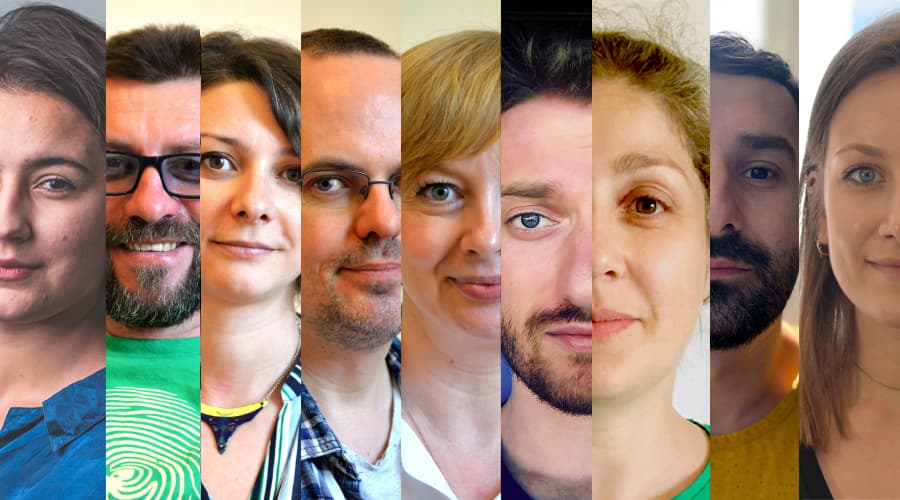
Avem nevoie de ajutorul tău!
Mulți ne citesc, puțini ne susțin. Asta e realitatea. Dar jurnalismul independent și de serviciu public nu se face cu aer, nici cu încurajări, și mai ales nici cu bani de la partide, politicieni sau industriile care creează dependență. Se face, în primul rând, cu bani de la cititori, adică de cei care sunt informați corect, cu mari eforturi, de puținii jurnaliști corecți care au mai rămas în România.
De aceea, este vital pentru noi să fim susținuți de cititorii noștri.
Dacă ne susții cu o sumă mică pe lună sau prin redirecționarea a 3.5% din impozitul tău pe venit, noi vom putea să-ți oferim în continuare jurnalism independent, onest, care merge în profunzime, să ne continuăm lupta contra corupției, plagiatelor, dezinformării, poluării, să facem reportaje imersive despre România reală și să scriem despre oamenii care o transformă în bine. Să dăm zgomotul la o parte și să-ți arătăm ce merită cu adevărat știut din ce se întâmplă în jur.
Ne poți ajuta chiar acum. Orice sumă contează, dar faptul că devii și rămâi abonat PressOne face toată diferența. Poți folosi direct caseta de mai jos sau accesa pagina Susține pentru alte modalități în care ne poți sprijini.
Vrei să ne ajuți? Orice sumă contează.
Share this


